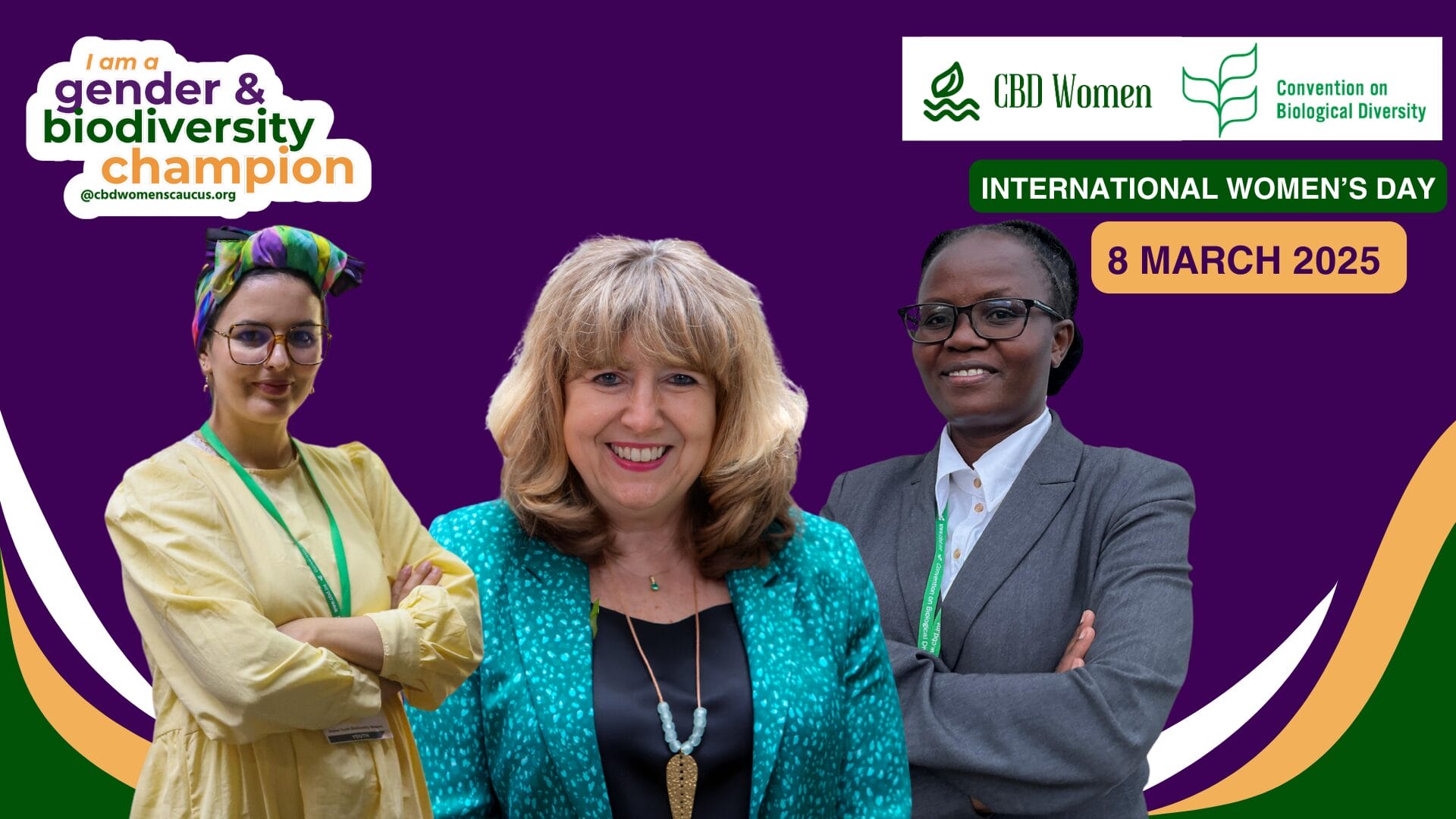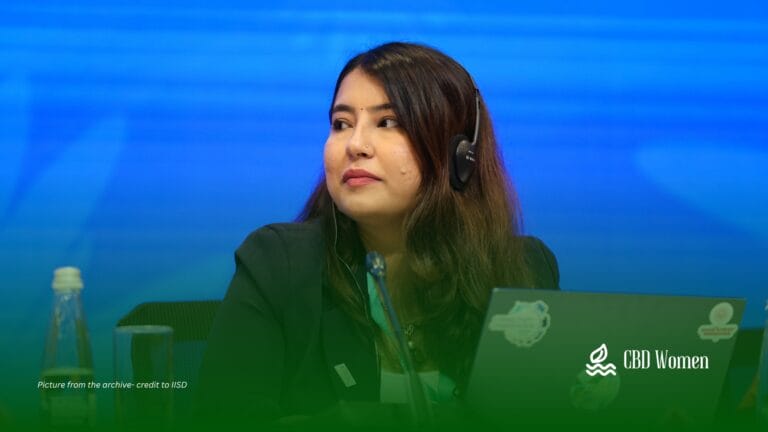Every year, International Women’s Day serves as a powerful reminder of the long-standing struggle for gender justice and the undeniable power of women in shaping the past, present, and future. It is an opportunity to reflect on the remarkable contributions women have made across all spheres of life from science to politics and activism to culture and to recognize the challenges that still lie ahead for their full enjoyment of rights. This day unites us in the pursuit of justice, equality, and empowerment.
On this International Women’s Day 2025, we stand united in the fight for gender justice in biodiversity policies, financing and action. The CBD Women’s Caucus organized a live stream with the Executive Secretary, Ms. Astrid Schomaker, who declared herself a Gender and Biodiversity Champion and reaffirmed her unwavering commitment to placing the rights of women and girls at the core of biodiversity policies, financing, and actions. Decisions must be implemented, and the Global Plan of Action (GPA) must be fully realized.
Exclusive Interview: The Executive Secretary, Ms. Astrid Schomaker
During this year’s celebration, Ms. Astrid Schomaker, Executive Secretary of the UN CBD, expressed her deep commitment as a Gender and Biodiversity Champion. In her address, she highlighted the critical need for women’s voices to be heard in biodiversity governance, emphasizing that despite progress, women’s representation in decision-making remains inadequate. She stated:
In her address, she highlighted the critical need for women’s voices to be amplified in biodiversity decision-making processes:
Ms. Schomaker further emphasized that the Gender Plan of Action (GPA) serves as a vital tool in translating broad commitments into concrete, achievable steps. While global negotiations are crucial, she highlighted that true implementation happens at the national level through National Biodiversity Strategies and Action Plans (NBSAPs). She stressed the importance of holding governments accountable and ensuring that inclusive discussions take place.
She also recognized the Government of Canada’s support under the NBSAP Accelerator Partnership, which funds gender-transformative approaches to biodiversity policy, and announced that several countries have already been selected as strategic partners in this initiative.
Looking ahead, Ms. Schomaker reiterated the CBD Secretariat’s commitment to ensuring accountability, stating that there will be a midterm review of both the Kunming-Montreal Global Biodiversity Framework and the Gender Action Plan to assess progress ahead of COP17. Additionally, she announced the upcoming appointment of a dedicated gender expert within the Secretariat to enhance engagement and responsiveness.
Reflecting on the engagement with the CBD Women’s Caucus, she shared:
The CBD Women’s Caucus: A Growing Force for Change
On behalf of the CBD Women’s Caucus, Ms. Cicilia Wangari Githaiga, Board Member of the CBD Women’s Caucus, shared her reflections on the progress made by the Women’s Caucus and its efforts towards gender justice. She spoke about the importance of collaboration and how the movement of women has grown over the years, with more than 700 women actively engaged in biodiversity advocacy.
Ms. Cicilia highlighted the importance of the Gender Plan of Action adopted at COP15, which provides a framework for addressing gender equality in biodiversity work. She explained how this plan is pivotal for mainstreaming gender in biodiversity policies, ensuring women and girls have equal access to natural resources and are empowered to contribute to decision-making processes.
One of the most significant achievements of the past few years is Target 23 under the Global Biodiversity Framework, which explicitly calls for gender equality in biodiversity conservation efforts. The target aims to ensure that women and girls have equal opportunities to contribute to the three main objectives of the CBD: conservation, sustainable use, and fair sharing of benefits.
Ms. Cicilia discussed how the Gender Plan of Action is supporting this target by guiding institutions and parties in implementing gender-responsive actions. She also emphasized the role of institutions like the GEF Small Grants Program, which has demonstrated how gender mainstreaming can be incorporated into grant-making processes.




